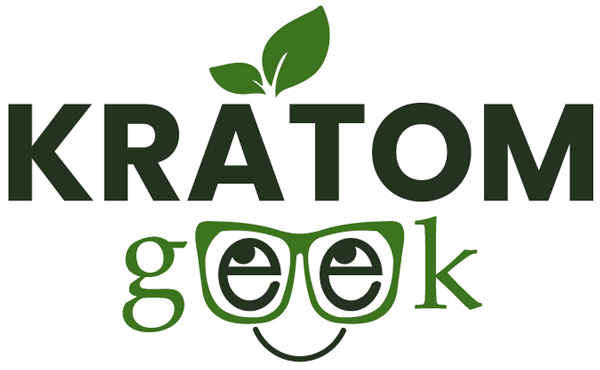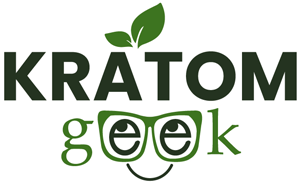In our last article, we discussed how the Wisconsin State Legislature is in the process of moving forward with a bill to repeal its Kratom ban. Currently, Wisconsin has the two primary active alkaloids in Kratom listed as a Scheduled I controlled substance.
The state has those alkaloids classified as stimulants, but it incorrectly categorizes them as substituted cathinones, which are synthetic analogs of an alkaloid found in the khat plant. Despite the mistaken identification of both compounds, some lawmakers are trying to undo the misinterpretation. However, we’re not talking about their labeling. We mean state representatives want to remove mitragynine and 7-hydroxymitragynine off the state’s list of scheduled substances altogether.
Some of the Wisconsin elected officials aren’t stopping there. They also want to pass a version of the Kratom Consumer Protection Act (KCPA) to protect consumers. The bill would regulate Kratom businesses in the state.
That piece of legislation recently went up for a vote in the Wisconsin Assembly Committee on State Affairs. The majority vote showed they wanted to replace the Kratom ban with the KCPA. But now, the proposal must continue its path in the halls of the Wisconsin State Capitol.
However, outside influences want to stop the bill dead in its tracks. The Wisconsin Medical Society has teamed up with the Wisconsin Society of Addiction Medicine (WISAM) to lobby against the KCPA proposal.
Wisconsin KCPA Receives Some Opposition
The Wisconsin Kratom Consumer Protection (KCPA) got introduced to the legislature at the tail end of 2021, but the Wisconsin Medical Society tried preventing its introduction way before then. On July 15th, 2021, the Society announced it had warned legislators the KCPA was ill-advised. The Society sent a message out to all 132 state representatives and senators advising them against it. The publication then misinformed its audience by saying the bill would allow companies to sell Kratom as a medicinal product that lets customers “alleviate their opioid dependency.”
However, the KCPA does not give any business the authority to market Kratom as an opioid dependency medication. Only FDA-approved drugs can get marketed as such by a company. And the Society knows that. They even link a posting by the FDA within that document saying practically the same thing. So, the organization was intentionally trying to deceive its audience. Then they mention an article, published by some of their fellow doctors, in the Wisconsin Medical Journal that used a newly coined term called “Kratom Use Disorder” (KUD).
Now, they’re not the first to use that scary term that makes it sound like Kratom is a highly addictive substance. Other doctors had used it already. For instance, some doctors reported they successfully treated KUD with opioids. But what doctor in their right mind would prescribe opioids, an addictive narcotic, to people who use Kratom?
Opioid Treatment Advocacy Groups Team Together
The Wisconsin Medical Society was not alone. They teamed up with physicians from the Wisconsin Society of Addiction Medicine (WISAM) to voice their outrage at the December 2021 public hearing held by the Committee of State Affairs. They claimed the herbal supplement was too addictive.
Yet, the Board of Directors for the WISAM take no issue with opioid treatment centers in the state pushing addictive medications to opioid addicts. And why would they? Essentially, methadone clinics and that ilk are state-sponsored drug dealers. The pharmaceutical industry wins on both sides of the battle: Make money on getting people addicted to an opioid and then get them addicted to another opioid disguised as a treatment for addiction. (You cannot make this stuff up, guys. Reality is stranger than fiction.)
The Society of Addiction Medicine even has an article within their newsletter advertising training courses to help doctors increase treatment capacity for opioid use disorders for prescribing buprenorphine. Now, remind you, they believe Kratom is too addictive for the public. But the WISAM considers buprenorphine a safe alternative to addictive opioids, disregarding the fact that it’s an—wait for it—opioid. I guess addiction to prescribed products gets a pass by them. After all, the FDA approved those addictive drugs for them to prescribe.
Right now, the US has millions of people addicted to Suboxone and Subutex. Sadly, the number seems to grow—alongside other prescribed opioids for treating opioid addiction. And the Society and WISAM want to increase those numbers.
Opioid Treatment Advocacy Groups Advocate for Opioids
In a well-managed society, doctors would have their patient’s health and best interests at heart. I mean, that’s an ethical standpoint one would expect. However, the world runs on money. Money has the power of persuasion.
Money can even influence a doctor’s medical habits. In an article published by ProPublica, an investigation demonstrated possible kickback situations between doctors and drugmakers. The investigators found a pattern related to financial ties and prescriptions. Drug companies paid billions to doctors for consulting and speaking fees. That monetary influence was able to manifest itself through prescribed medications. In the study, doctors who received compensation from specific pharmaceutical companies prescribed their medications 58% more than physicians who never received payments. We need to be cautious about testimony from doctors that make bold claims to help their financial predicament.
The opioid industry is no different. For instance, we have an ongoing opioid epidemic in our country. It seems like it continues to get worse each year. And we recently discovered that pharmaceutical companies were fueling its progression.
One study highlighted how pharmaceutical companies spent millions on pain-treatment advocacy groups to advocate for more opioid prescriptions. Now, we might be witnessing the same thing happening in its aftermath. Opioid treatment advocacy groups push opioids to treat opioid dependency to their patients. Another study showed more than 8 in 10 nonprofit patient advocacy groups are partially supported by the pharmaceutical industry. That creates a conflict of interest.
Opioids Are Deadly But Kratom Is Not
Approximately a half-million people have died from an opioid overdose in the past two decades. Opioids are one of the most addictive substances on the planet. So I find it amusing that member physicians of an opioid treatment advocacy group that prescribes opioids would have the audacity to claim Kratom products are dangerous.
No conclusive evidence exists that Kratom has killed anyone. Any report that claims otherwise used inconclusive data.
The WHO agrees. Recently, the World Health Organization investigated Kratom and its potential dangers. And its group of world-renowned experts agreed no data existed to prove Kratom is addictive or deadly. As a result, the WHO refused to recommend an international Kratom ban.
Nevertheless, we are witnessing a group of doctors trying to influence legislation to keep citizens away from an herbal supplement while claiming dependency as the issue. Now, nobody has said Kratom doesn’t have any sort of habit-forming properties. It does. But those properties are on par with caffeine. Yet, nobody wants to ban coffee. Nor should they. However, those same physicians prescribe opioid medications to their patients. We all know very well that opioids are addictive and can be fatal when misused.
We need to ask ourselves why opioid treatment doctors that prescribe opioids want to keep a federally legal supplement away from their patients.
As physicians, we should expect they’re aware of ongoing studies to research opioid-dependency-relieving properties of Kratom alkaloids.
So, we may have found our answer.






